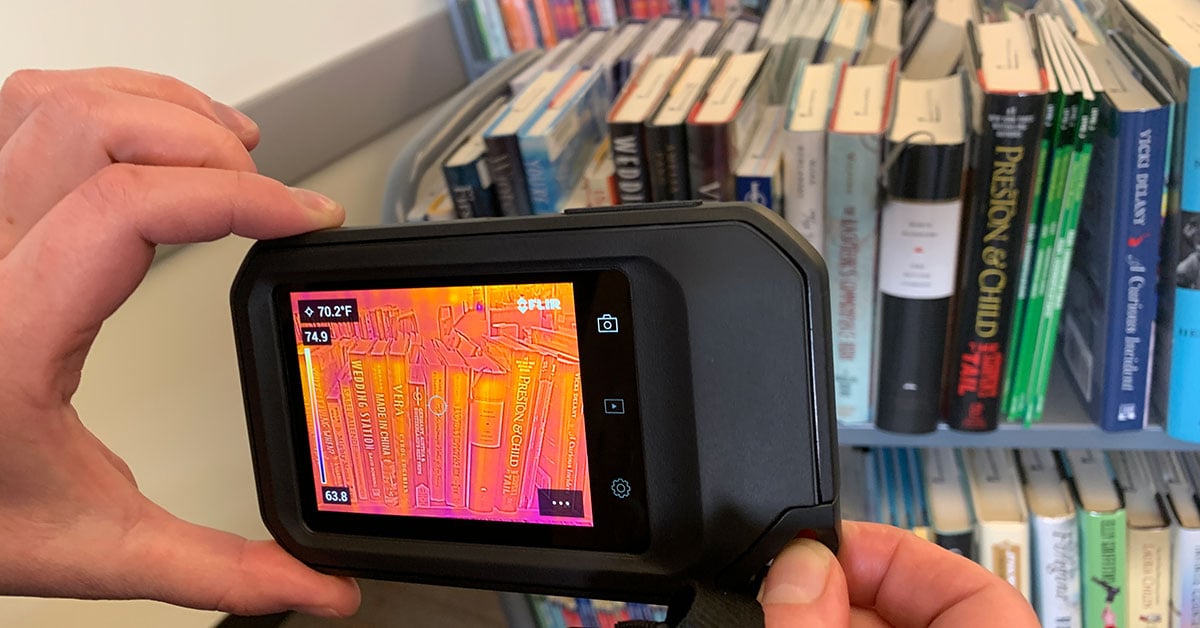Watertown Public Library Lends out FLIR C5 to Patrons

The Watertown Free Public Library in Massachusetts recently launched a “Library of Things” lending program—a collection of non-traditional library materials that can be checked out for a week just like a book or a DVD. Among the collection is a FLIR C5, a handheld thermal imaging camera that patrons can use for a variety of home and DIY applications.
One of the most common uses for a thermal imaging camera is home inspection and maintenance. With a C5, library patrons can take a look at their house in thermal and spot where heat is escaping (or entering). Air leaks in chimneys, attics, wall vents, windows, and badly sealed doorways are common culprits for letting cold infiltrate a house, but can be extremely difficult to detect.

The FLIR C5 is a useful tool for finding missing insulation and other common building issues.
Other common problems a C5 can reveal include where insulation in the walls or ceiling might not have been installed properly, or single-pane windows that are causing a major energy drain.
The FLIR C5 is in the company of a wide variety of other items, including a bird-watching kit, a metal detector, and a circular saw. The Library of Things is a great opportunity for people to test out equipment before deciding to invest in their own, or to fulfill a one-time need. With a C5 for one week, for instance, homeowners can find out for themselves where the problem spots in their homes are, and either apply a DIY fix or call in a professional if more work needs to be done.

Watertown library staff member taking a thermal selfie with their FLIR C5.
Non-traditional lending programs are an increasingly popular library feature. Before receiving their FLIR C5 for loans, the Watertown Library staff heard from patrons that they would love to have an infrared camera available to borrow, and since being added to the collection it’s been a hit with users.
Learn more about Watertown’s Library of Things program, or check out your own local library to find out if they have a similar program, and possibly a thermal imager available to borrow.


